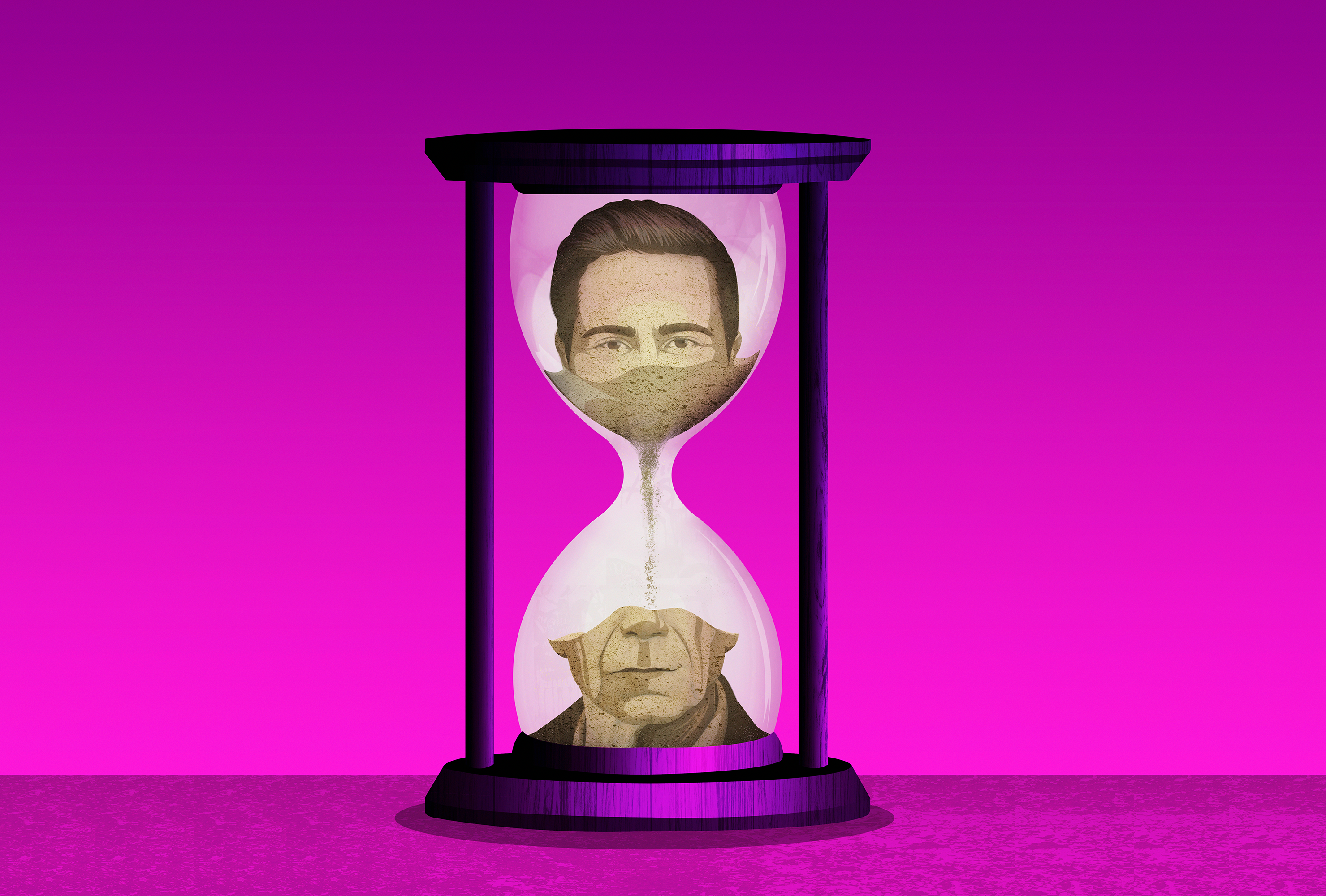Listen to this story
–:–
–:–
FUTURE HUMAN
Some experts say 150 is not only reachable but inevitable
 Credit: Taylor Callery/Ikon Images/Getty
Credit: Taylor Callery/Ikon Images/Getty
 The oldest person who ever lived ? at least according to verifiable records ? was Jeanne Calment, who died in 1997 in France at the age of 122.
The oldest person who ever lived ? at least according to verifiable records ? was Jeanne Calment, who died in 1997 in France at the age of 122.
Exactly one person has lived to 119, and seven have reached 117 ? including Japan?s Chiyo Miyako, who is currently the oldest recorded living human. Ten people have lived to 116, and 27 have reached 115. Keep subtracting years, and the number of people who live that long increases.
Looking over that list, you get the feeling there must be a ceiling on the human lifespan ? some point at which terminal organ failure or some other form of cellular degradation is unavoidable, and a 2016 paper went a long way to confirm that hunch.
Researchers at the Albert Einstein College of Medicine published a paper in the journal Nature that laid out the evidence of an upper limit on the human lifespan. ?Our main argument for such a limit is the fact that the record-oldest individual died more than 20 years ago,? says Jan Vijg, PhD, chair of genetics at Einstein. ?While the record-oldest living individual increased year over year at least since the 1950s, this increase stopped in the 1990s.?
Vijg points out that there are many, many more centenarians living today than ever before, but the mortality rate among the over-100s hasn?t budged much at all since the mid-1980s. ?If you were a centenarian in 1985, your chances of dying were exactly the same as they are now, in 2018,? he says. This, coupled with the fact that the oldest-ever record isn?t being broken every year or two, is a sign that we may be bumping our heads against a ceiling, Vijg says. ?It is the process of aging that constrains lifespan,? he adds. Until we figure out a way to stop aging ? not just treat or prevent specific diseases ? there isn?t much chance we?ll live much longer lives.
But others take issue with Vijg?s conclusions.
Siegfried Hekimi, PhD, is a professor of biology at Canada?s McGill University and co-author of a 2017 rebuttal to Vijg?s paper. Hekimi and colleagues examined nearly 50 years of data on the longest-living people in the United States, U.K., Japan, and France. They found that, just as lifespan increased fairly steadily over the past 50 years, the maximum age also followed a reliable upward trajectory that has yet to level off.
Until we figure out a way to stop aging, there isn?t much chance we?ll live much longer lives.
Hekimi points to the dozens of people who have approached the age of 120, many of whom died recently. ?Given that their lives were not even close to as comfortable as ours, and given the constant increase in average lifespan in most countries, it?s almost a nonstatement that some will live to 150,? he says. In other words, 150 is practically a foregone conclusion.
Hekimi mentions the past century?s advancements in hygiene, vaccinations, indoor climate control, food safety, food availability, and the decline in physically stressful work. These are all life-extending factors that ? because they?re relatively recent ? have not fully benefited the current crop of super-old humans. ?The reason people will almost certainly live longer in the future than now is that those who are now the oldest?over 110, say?have benefited only very partially from all these advancements,? Hekimi says. ?It?s humanity?s greater and greater control over its environment and living conditions that increases people?s average and maximal lifespan.?
As life grows more and more cushy, there?s no reason to think people won?t continue to live longer and longer, he adds.
?I would say we [haven?t reached the maximum human lifespan],? says Kenneth Wachter, PhD, a professor of demography and statistics at the University of California, Berkeley and co-author of a recent study that examined Italian centenarians to glean insights into human longevity.
Wachter allows that, in evolutionary theory, there are reasons to believe organisms like humans would not be designed to live much beyond the current record of 122. ?There?s the argument over whether our genetic heritage is permissive or not,? he says. ?What my friends and I saw in our Italian data ? and biologists have seen in other species ? is that evidence strongly suggests our genetics are permissive.? Wachter doesn?t believe humans can live indefinitely. But he says DNA-based personalized medicine is a burgeoning field where ?progress can be made? when it comes to improving both lifespan and healthy aging.
Other experts inject more real-world factors into the disagreement.
Valter Longo, PhD, is a professor of biological sciences and director of the Longevity Center at the University of Southern California. He points out that lifespan in the United States appears to have flatlined ? and may even be slightly declining. He also cites America?s historically high rates of obesity that are now being replicated across the globe. ?If you look at Okinawa, Greece, Southern Italy ? all these places where the people set records for longevity ? their grandchildren today live much less healthy lifestyles,? Longo says.
?It?s humanity?s greater control over its environment that increases people?s average and maximal lifespan.?
So even as medical, societal, and technological advancements have allowed people to dodge disease and hardship like never before, many people have moved away from the diet or physical activity patterns that promote healthy aging. ?We?ve done some things right, and we?ve done some things wrong,? Longo says.
But take a billion people born today, offer them all the latest care and comforts, and get them to follow the healthy diet and lifestyle habits some people practiced a century ago (eating a whole-food-based Mediterranean diet, for example, and spending the day moving around), and you have a recipe for a longer, healthier life. ?If we can learn from the past and match it to the science and clinical data, it?s not unreasonable to think we could add 20 or 30 years,? Longo says.
And that?s based solely on what we already know and can do today. Toss into the mix some new breakthrough or insight ? a revolutionary form of cellular regeneration or repair therapy, for example ? and who knows how long a person could live?
?Then the science fiction world, which is talking about bionics and genetic engineering,? Wachter says. ?But that?s a whole different set of argument.?
Vijg agrees that technological breakthroughs could nullify the whole ?how long? debate. ?Such a breakthrough may never come,? he says. ?However, if you told someone in 1700 that in 300 years we would all fly like birds in big machines all across the globe, that person would have said you are mad.?


